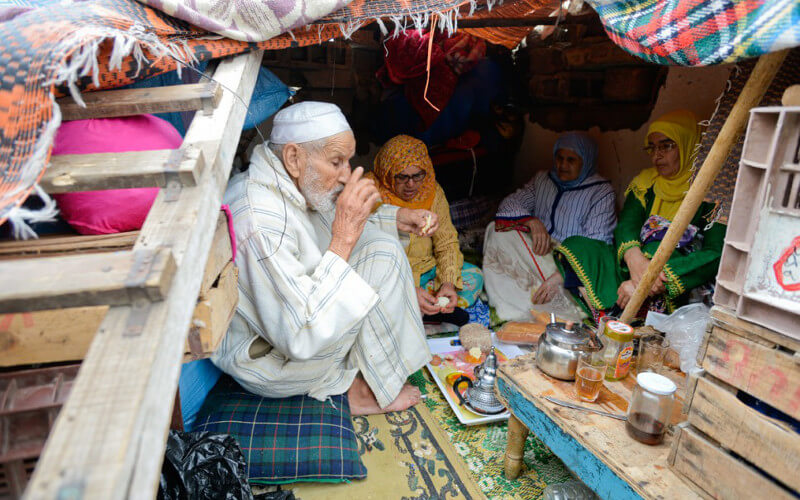Morocco’s Istiqlal Party Proposes Universal Income for Poorest as Part of Post-Pandemic Recovery Plan

In the run-up to the "deconfinement" of June 10, the Secretary General of the Istiqlal, Nizar Baraka, presented on Friday the main lines of his party’s Memorandum in the presence of the Head of Government.
"A responsible economic recovery and a solid social protection to build the future". This is the title of the Istiqlal Memorandum which aims to make proposals to the government in this context of a state of health emergency. According to the former Finance Minister, Nizar Baraka, this is not the time to assess the management of the crisis. This first management phase is done by the party in partnership with the government.
However, today, according to the political leader, the government is not clearly considering the implementation of a new social contract. For this reason, the party proposes a plan for a responsible recovery with a social dimension. This plan aims to mobilize national institutions, skills and capacities, in order to face the risks imposed by the current crisis. The party therefore proposes six strategic axes. These are the strengthening of national sovereignty, social cohesion, the restructuring of the current education system. The reform of the health sector, job creation and energy transformation are the other points.
According to the former minister, we must work towards a Unified Universal Income as a social protection mechanism, and target the disadvantaged categories. According to the Secretary General reported by TelQuel, the education system must rely on digital literacy, teacher training, students, and the rehabilitation of schools, particularly in the rural world. In the health sector, this party proposes mechanisms for the establishment of universal health coverage, and an improvement in the quality of access to care. For the relaunch of jobs, the party advocates a Marshall plan for businesses, but also the creation of a National Public Investment Bank, to help finance and restructure SMEs and VSEs.
The last proposal relates to the necessary ecological transformation to ensure the sustainability of the economy, following the Renewable Energy Development Plan. As for public aid, it must take into account nearly six million Moroccan families who live only thanks to state support.
The Secretary General notes that the country is obliged to borrow, given the 40 billion dirham drop in state revenue, coupled with a drop in GDP points. The state will have to borrow, either internally, or externally, or both. If the state borrows only in the domestic market, the company will not find sources of financing, because the debt will increase dramatically. But if the state relies solely on external borrowing, the other risk is to lose monetary sovereignty in favor of the IMF.
Related Articles
-

Morocco’s Economic Boom: From Infrastructure Giant to Global Industrial Hub
5 September 2025
-

Oualidia: Morocco’s Hidden Coastal Gem Rivals Marrakech for Luxury and Tranquility
5 September 2025
-

Morocco’s Real Estate Slump: Transactions Plummet 21% as Major Cities Face Diverging Fortunes
5 September 2025
-

Moroccan Dirham Slips as Foreign Reserves Surge: Economic Shifts Shake Markets
5 September 2025
-

Moroccan Authorities Probe Suspicious Financial Transfers to African Countries
5 September 2025